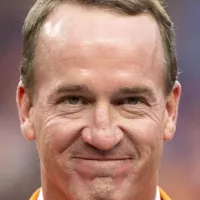Captain America, created by Joe Simon and Jack Kirby, is a Marvel Comics superhero whose real name is Steve Rogers. During World War II, Rogers was transformed into a super-soldier via an experimental serum, granting him peak physical abilities. Donning an American flag-themed costume and wielding an indestructible shield, he fought against the Axis powers, most notably the Red Skull, alongside his sidekick Bucky Barnes. Near the war's end, he was frozen and later revived in modern times. Adapting to a vastly changed world, Captain America continues his heroic endeavors and becomes a leader of the Avengers, often grappling with being a 'man out of time'.
December 20, 1940: Captain America Comics #1 Published
On December 20, 1940, Captain America Comics #1 was published by Timely Comics, introducing Captain America, a superhero created by Joe Simon and Jack Kirby. The comic featured Steve Rogers, a frail man enhanced by a "super-soldier serum" to fight for the United States Army in World War II.
1940: Creation of Captain America
In 1940, Timely Comics publisher Martin Goodman hired Joe Simon to create a new superhero, leading to the development of Captain America with Adolf Hitler as his nemesis.
March 1941: Captain America Comics #1 Cover Date
In March 1941, Captain America Comics #1 had its cover date printed. The comic introduced the Red Skull and Bucky Barnes.
October 1944: Captain America Fights Gangsters
In October 1944, Captain America Comics #42 repositioned the character to fight gangsters rather than wartime enemies.
1944: Captain America's First Appearance Outside Comic Books
In 1944, Captain America was the first Marvel character to appear in a medium outside of comic books, in the serial film Captain America.
1944: Captain America Serial Film Release
In 1944, Captain America's first appearance outside of comic books was in the serial film "Captain America", marking the first time a Marvel Comics character was featured in non-comics media.
August 1946: Captain America as a High School Teacher
In August 1946, Captain America appeared as a high school teacher in Captain America Comics #59.
February 1950: End of Captain America Comics
In February 1950, Captain America Comics ended with its 75th issue, transitioning into Captain America's Weird Tales.
1950: Captain America Comics Discontinued
In 1950, Captain America Comics was discontinued due to the declining popularity of superheroes in the post-war period.
1953: Captain America Relaunched in Young Men #24
In 1953, Atlas Comics relaunched Captain America in Young Men #24 alongside Human Torch and Toro.
1953: Short-lived Revival of Captain America
In 1953, the character Captain America saw a short-lived revival before returning to comics in 1964.
1954: Captain America, Commie Smasher Revival
In 1954, Captain America Comics was revived by Stan Lee and John Romita as Captain America, Commie Smasher, but was canceled after three issues due to commercial failure.
1954: Creation of Fighting American
In 1954, after being dismissed from Timely, Joe Simon and Jack Kirby created the Fighting American for Prize Comics, leading to legal action from Marvel in the 1990s.
November 1963: Captain America's Ostensible Return in Strange Tales #114
In November 1963, Captain America made his ostensible return in Strange Tales #114, but was revealed as an imposter.
March 1964: Captain America Formally Reintroduced in The Avengers #4
In March 1964, Captain America was formally reintroduced in The Avengers #4 due to enthusiastic reader response from Strange Tales #114.
November 1964: Captain America Solo Stories in Tales of Suspense
In November 1964, Captain America solo stories, written by Lee and illustrated by Kirby, were published in Tales of Suspense alongside Iron Man.
1964: Captain America Returns to Comics
In 1964, Captain America returned to comics and has since remained in continuous publication.
1966: The Marvel Super Heroes TV series
In 1966, Captain America's first appearance on television was in the Grantray-Lawrence Animation series "The Marvel Super Heroes".
1966: Joe Simon Sues Marvel Comics
In 1966, Joe Simon sued Marvel Comics over the copyright of Captain America, which was settled out of court.
April 1968: Captain America's Self-Titled Series Relaunched
In April 1968, Captain America's self-titled ongoing series was relaunched, with Lee as writer and Kirby as penciller.
1968: Captain America: The Great Gold Steal Novel Release
In 1968, Captain America was the first Marvel character to be adapted into a novel with "Captain America: The Great Gold Steal" by Ted White.
September 1969: Introduction of The Falcon
In September 1969, Captain America #117 introduced The Falcon, the first African-American superhero in mainstream comic books.
1969: Jim Steranko's Influential Run on Captain America
In 1969, Jim Steranko authored a three-issue run of Captain America, reestablishing the character's secret identity and introducing a more experimental art style.
1969: Introduction of Sam Wilson as Falcon
In 1969, Sam Wilson, who became the Falcon, was introduced, becoming Captain America's sidekick and forming the first interracial superhero duo in American comic books.
1970: Jim Steranko's Commentary on Captain America's Character
In his 1970 book, "The Steranko History of Comics", Jim Steranko discussed Captain America's character, noting criticisms of being two-dimensional but arguing this was intentional to represent a pure idea.
February 1971: Captain America and the Falcon Series
In February 1971, the Captain America series was cover titled as Captain America and the Falcon.
1971: Marvel's Neutrality on Vietnam
In 1971, Marvel maintained a position of neutrality on the Vietnam War, with Stan Lee stating that readers did not want Captain America to be involved.
1972: Steve Englehart and Sal Buscema Join Captain America
In 1972, writer Steve Englehart and artist Sal Buscema joined the Captain America series, shaping its political themes.
1974: Watergate-Inspired Storyline
In 1974, Captain America was framed for murder by the Secret Empire in a storyline inspired by the Watergate scandal, leading Steve Rogers to become "Nomad".
1975: Creation of The Invaders Comic Book Series
In 1975, Roy Thomas created The Invaders comic book series, set during World War II, with Captain America as its leader.
1977: Jack Kirby's Run on Captain America and the Falcon Ends
In 1977, Jack Kirby's run on Captain America and the Falcon ended.
1978: Captain America Series Re-titled
In 1978, the Captain America series was re-titled Captain America beginning with issue 223.
1979: Made-for-TV Films
In 1979, Captain America appeared in two made-for-TV films: "Captain America" and "Captain America II: Death Too Soon".
1980: Roger Stern and John Byrne Author Captain America
From 1980 to 1981, Roger Stern and John Byrne authored the Captain America series, featuring a storyline where Captain America declines an offer to run for president.
1981: J.M. DeMatteis and Mike Zeck Author Captain America
From 1981 to 1984, J.M. DeMatteis and Mike Zeck authored Captain America, featuring a storyline about Captain America facing a crisis of confidence.
1981: Spider-Man and His Amazing Friends
From 1981, Captain America made minor appearances in several Marvel animated series, including "Spider-Man and His Amazing Friends".
1983: End of Spider-Man and His Amazing Friends
In 1983, the animated series "Spider-Man and His Amazing Friends", in which Captain America made minor appearances, ended.
1984: J.M. DeMatteis Resigns From Captain America
In 1984, J.M. DeMatteis resigned from Captain America after Marvel rejected his planned pacifist ending for the series.
1985: Mark Gruenwald Becomes Writer and Paul Neary Becomes Artist
In 1985, Mark Gruenwald, previously the editor of Captain America, took over as the writer for the series, serving until 1995. Also in 1985, Paul Neary began illustrating the series, continuing until 1987.
1987: "The Choice" Storyline
In 1987, the "The Choice" storyline occurred, where Steve Rogers renounced the Captain America identity and became "The Captain" after the U.S. government wanted direct control over his superhero activities.
1988: Introduction of John Walker as a Villainous Captain America
In 1988, John Walker, also known as U.S. Agent, was introduced as a villainous version of Captain America.
1988: Kieron Dwyer Illustrates Captain America
In 1988, Kieron Dwyer began illustrating the Captain America series, continuing until 1990, taking over from Paul Neary.
1990: Self-Titled Feature-Length Film
In 1990, a self-titled, feature-length Captain America film was released.
1992: X-Men: The Animated Series
From 1992, Captain America made minor appearances in several Marvel animated series, including "X-Men: The Animated Series".
1995: Mark Gruenwald's Tenure Ends
In 1995, Mark Gruenwald's long run as writer for Captain America concluded, marking the end of a significant era for the series.
1995: Mark Waid and Ron Garney Begin Authoring Captain America
In 1995, Mark Waid and Ron Garney started writing and illustrating Captain America, reintroducing Sharon Carter.
1996: "Heroes Reborn" Rebranding and Cancellation of Waid and Garney's Run
In 1996, Marvel's "Heroes Reborn" rebranding led to the termination of Mark Waid and Ron Garney's Captain America run after ten issues. Additionally, Marvel filed for Chapter 11 bankruptcy protection in 1996.
1997: End of X-Men: The Animated Series
In 1997, the animated series "X-Men: The Animated Series", in which Captain America made minor appearances, ended.
1998: Mark Waid Returns to Captain America
In 1998, Mark Waid returned to Captain America as writer, initially with Ron Garney as artist, and later with Andy Kubert.
1999: The Avengers: United They Stand
From 1999, Captain America made minor appearances in several Marvel animated series, including "The Avengers: United They Stand".
1999: Joe Simon Files Copyright Claim
In 1999, Joe Simon filed to reclaim the copyright to Captain America, invoking a provision of the 1976 Copyright Act.
2000: Dan Jurgens Takes Over Captain America
In 2000, Dan Jurgens succeeded Mark Waid as the writer and artist for Captain America, setting the character in a cynical world.
2000: End of The Avengers: United They Stand
In 2000, the animated series "The Avengers: United They Stand", in which Captain America made minor appearances, ended.
2002: Publication of New Series by John Ney Rieber and John Cassaday
From 2002 to 2003, a new Captain America series, written by John Ney Rieber and illustrated by John Cassaday, was published under the Marvel Knights imprint.
2003: Introduction of Isaiah Bradley in Truth: Red, White & Black
In 2003, Isaiah Bradley, an African American man who acquired superpowers after being a test subject for the Super-Soldier Serum, was established in the limited series Truth: Red, White & Black.
2003: Simon and Marvel Settle Out of Court
In 2003, Joe Simon and Marvel reached an out-of-court settlement regarding the copyright to Captain America, which included royalties for Simon.
2003: End of Rieber and Cassaday's Series and Criticism
In 2003, the Captain America series written by John Ney Rieber and illustrated by John Cassaday concluded, having faced criticism for its depiction of Captain America fighting terrorists resembling Al-Qaeda.
2005: Bucky Barnes Returns as the Winter Soldier
In 2005, Bucky Barnes, previously believed to be deceased, returned as the Winter Soldier, a brainwashed assassin and antagonist to Captain America.
2005: Marvel Relaunches Captain America with Ed Brubaker and Steve Epting
In 2005, Marvel relaunched Captain America with Ed Brubaker writing and Steve Epting illustrating. This run introduced "The Winter Soldier" storyline.
2006: "Civil War" Crossover Storyline
In 2006, Captain America was a central character in the "Civil War" crossover storyline, which put him in conflict with Iron Man.
2007: "The Death of Captain America" Storyline
In 2007, "The Death of Captain America" storyline was published, accompanied by the miniseries Fallen Son: The Death of Captain America, marking the character's death.
2007: Death of Steve Rogers
In 2007, Steve Rogers died, leading to Bucky Barnes to take on the role of Captain America in 2008.
2007: Captain America's Death and Eulogies
In 2007, upon the character's death, Captain America was eulogized in major media outlets such as The New York Times and The Los Angeles Times.
2008: Bucky Barnes as Captain America
In 2008, following Steve Rogers's death in 2007, Bucky Barnes took over the title of Captain America.
2009: Captain America: Reborn Limited Series
In 2009, Captain America was revived in the limited series Captain America: Reborn after his death in the 2007 storyline.
2010: The Avengers: Earth's Mightiest Heroes
From 2010, Captain America began appearing in television series in more prominent roles, such as "The Avengers: Earth's Mightiest Heroes".
2011: Chris Evans' First Appearance as Captain America
In 2011, Chris Evans first portrayed Captain America in the film Captain America: The First Avenger within the Marvel Cinematic Universe.
2011: Captain America: The First Avenger Release
In 2011, Chris Evans starred as Captain America in "Captain America: The First Avenger", which was produced as part of the Marvel Cinematic Universe (MCU).
2012: End of The Avengers: Earth's Mightiest Heroes
In 2012, "The Avengers: Earth's Mightiest Heroes", in which Captain America appeared, ended.
2012: The Avengers Release
In 2012, Captain America appeared in the ensemble film "The Avengers".
2012: Captain America Ranked on IGN's Top 50 Avengers
In 2012, Captain America was ranked second in IGN's list of "The Top 50 Avengers".
2012: End of Ed Brubaker's Run
In 2012, Ed Brubaker's critically acclaimed run on Captain America concluded, marking the end of an era for the series.
2012: New Volume of Captain America as Part of Marvel Now
In 2012, a new volume of Captain America, written by Rick Remender, was published as part of the Marvel Now rebranding initiative.
2012: Sam Wilson as Captain America during Marvel Now!
In 2012, as part of Marvel's Marvel Now! rebranding campaign, Sam Wilson took over the role of Captain America after Rogers lost the Super Soldier serum.
2014: Captain America: The Winter Soldier Release
In 2014, Chris Evans starred as Captain America in "Captain America: The Winter Soldier", which was produced as part of the Marvel Cinematic Universe (MCU).
2014: Sam Wilson Assumes the Mantle of Captain America
In 2014, Sam Wilson took on the role of Captain America.
2015: Captain America's Widespread Media Presence
As of 2015, Captain America had appeared in over ten thousand stories across more than five thousand media formats, including comic books, books, and trade publications.
2015: Avengers: Age of Ultron Release
In 2015, Captain America appeared in the ensemble film "Avengers: Age of Ultron".
2015: Captain America Ranked by Gizmodo and Entertainment Weekly
In 2015, Gizmodo and Entertainment Weekly ranked Captain America first and second, respectively, in their rankings of Avengers characters.
2016: Captain America: Civil War Release
In 2016, Chris Evans starred as Captain America in "Captain America: Civil War", which was produced as part of the Marvel Cinematic Universe (MCU).
2016: Nick Spencer's Run Begins
In 2016, Nick Spencer began writing Captain America, introducing a version of the character loyal to Hydra.
2017: Secret Empire Crossover Event
In 2017, the Secret Empire crossover event culminated Nick Spencer's storyline, where Captain America was replaced by a Hydra version.
2018: Avengers: Infinity War Release
In 2018, Captain America appeared in the ensemble film "Avengers: Infinity War".
2018: Fresh Start Rebrand and New Series by Ta-Nehisi Coates
In 2018, as part of Marvel's Fresh Start rebrand, a new Captain America series written by Ta-Nehisi Coates with art by Leinil Francis Yu was published.
2019: Avengers: Endgame Release
In 2019, Captain America appeared in the ensemble film "Avengers: Endgame".
2019: Chris Evans' Final Appearance as Captain America
In 2019, Chris Evans made his final appearance as Captain America in Avengers: Endgame.
2021: End of Ta-Nehisi Coates's Run
In 2021, Ta-Nehisi Coates's run on Captain America concluded, marking the end of his contribution to the series.
September 2023: J. Michael Straczynski's Captain America Volume Published
In September 2023, a volume of Captain America written by J. Michael Straczynski was published.
December 2024: End of J. Michael Straczynski's Captain America Volume
In December 2024, the volume of Captain America written by J. Michael Straczynski concluded.
July 2025: Chip Zdarsky's Captain America Volume Debut
In July 2025, a new volume of Captain America written by Chip Zdarsky is slated to debut.
Mentioned in this timeline

Stan Lee was a pivotal figure in the comic book...
Marvel Comics founded in as Timely Comics by Martin Goodman...
The United States of America is a federal republic located...

The Vietnam War was a conflict in Vietnam Laos and...
World War II - was a global conflict between the...

Los Angeles is the most populous city in California and...
Trending

9 months ago Football pause for importance, Nico Iamaleava's transfer, and top college players.

The Super Bowl is the annual championship game of the National Football League NFL held since Since it has been...

10 months ago Juan Soto Faces Criticism: Mets Fans Upset, Scout Deems Slugger Overrated

9 months ago Barkley and Manning Star in New Nationwide Commercial
Matt Prater is a professional American football placekicker currently playing for the Buffalo Bills He is renowned for his exceptional...

Jusuf Nurki is a Bosnian professional basketball player currently playing for the Utah Jazz in the NBA Drafted th overall...
Popular

XXXTentacion born Jahseh Dwayne Ricardo Onfroy was a controversial yet...

William Franklin Graham III commonly known as Franklin Graham is...

Thomas Douglas Homan is an American law enforcement officer who...
Matt and Ross Duffer known as the Duffer Brothers are...

Martin Luther King Jr was a pivotal leader in the...
Curt Cignetti is an American college football coach currently the...

